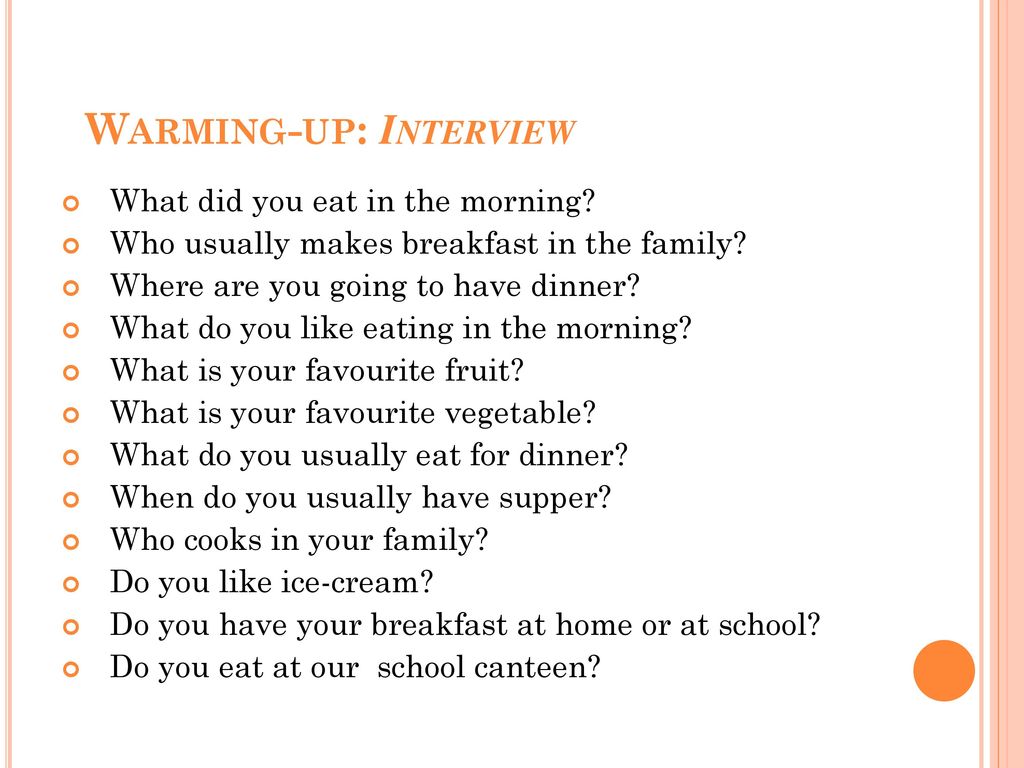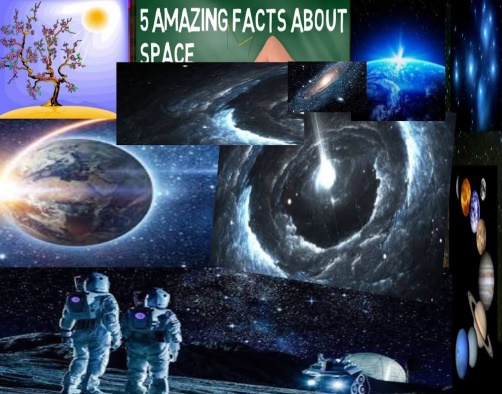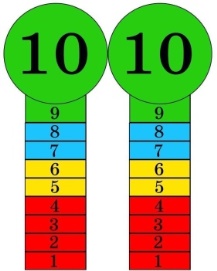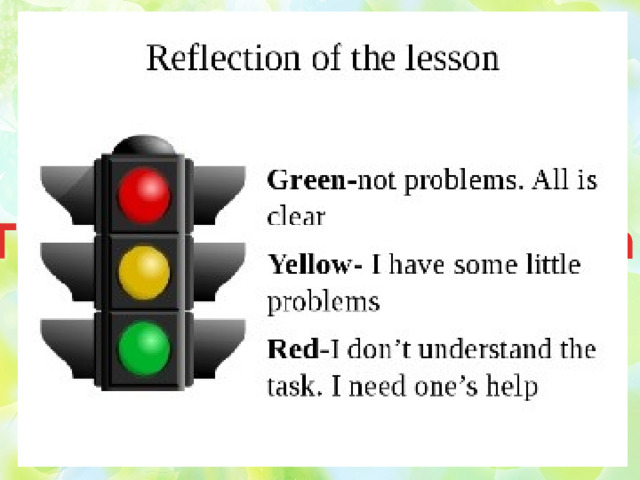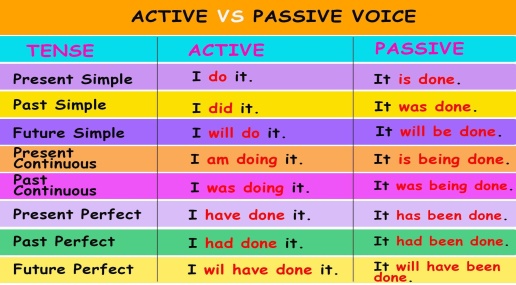
Short term plan: term 4
|
Unit 8: Space |
Lesson 81 |
||
|
Teacher name: |
|
||
|
Date: |
|
||
|
Grade: 10 |
Number present: |
absent: |
|
|
Lesson title |
Amazing facts about space |
||
|
Learning objectives |
10.1.9.1 - use imagination to express thoughts, ideas, experiences and feelings; 10.2.5.1 - recognize the attitude or opinion of the speaker(s) in unsupported extended talk on a wide range of general and curricular topics, including talk on a limited range of unfamiliar topics |
||
|
Lesson objectives |
Learners will be able to: -introduce new vocabulary -listen for confirmation |
||
|
Value links |
Hospitality: Traditionally a nomadic culture, hospitality has always been an important part of Kazakh culture. |
||
|
Plan |
|||
|
Stages / Time |
Teachers actions |
Students actions |
Assessment criteria |
Resources |
|
Beginning of the lesson Warming-up 3 min. Pre-learning «Brainstorming» method 7 min. |
Organization moment : 1.Greeting. Ask about the weather. The teacher sets the lesson objectives, letting students know what to anticipate from the lesson.
Lead – In
|
The aim: To develop pupils speaking skills and create friendly atmosphere Students of the class are listed. Students' attention is drawn to the lesson. Students say different words from the picture •Learners remember previous lesson vocabulary •Learners answer the questions |
The teacher to assess learners for their ability. “Good job! Well done!” Formative Assessment
Good job! Descriptor: - remembers the lesson passed Point 1 Assessment criteria make basic statements related to personal information, people and objects |
Pictures worksheet Picture |
|
Middle of the lesson Presentation part. 30 min |
Ex:1a P:97 • Direct Ss' attention to the picture and ask them to read the texts. Go through the words in the list and explain/ elicit the meanings of any unknown words. Give Ss time to complete the texts. Check Ss' answers. Differentiation: «Verbal support» method is used to help Ss use new words in the sentences. Ex: 1b P: 97 •Play the recording. Ss listen and check their answers to Ex. 1a. Play the video for Ss and elicit their comments. Over to you Elicit answers to the questions in the rubric from various Ss around the class. Conclusion during the lesson some tasks differentiated by outcomes of the students and by their abilities. |
• Learners fill the gaps. ANSWERS 1 particles 2 waves 3 radio 4 surface 5. atmosphere 6 Stars 7 dwarf 8 solar 9 telescopes • Learners listen and check. ANSWERS Student’s own answer. • Pupils answer the question. Tell the class. ANSWERS I was impressed that the footprints on the Moon will stay there for at least 100 million years and that an 11-year-old girl got to name a dwarf planet. |
Descriptor: - fill the gaps - complete the texts Total: 2 point
Self assessment Descriptor: - listen and check. Total: 2 point Descriptor: - answer the question - еell the class Total: 2 point -Make CCQ questions Yes / No Total: 1 point |
Card Worksheet Students book |
|
End of the lesson 5 min |
FEEDBACK Learners provide feedback on what they have learned at the lesson. Ex: P: Home task: Write the days |
|
Poster Success
|
|
Short term plan: term 4
|
Unit 8: Space |
Lesson 82 |
||
|
Teacher name: |
|
||
|
Date: |
|
||
|
Grade: 10 |
Number present: |
absent: |
|
|
Lesson title |
UFO tour |
||
|
Learning objectives |
10.2.6.1 - deduce meaning from context in unsupported extended talk on a wide range of general and curricular topics, including talk on a limited range of unfamiliar topics; 10.3.7.1 - use appropriate subject-specific vocabulary and syntax to talk about a range of general and curricular topics; |
||
|
Lesson objectives |
Learners will be able to: - talk about space and expand the topic - predict the content of the text - identify the writer's purpose |
||
|
Value links |
Tradition: Kazakh traditions and culture have been passed on from one generation to another through oral histories told by traditional Kazakh tribal leaders and elders. |
||
|
Plan |
|||
|
Stages / Time |
Teachers actions |
Students actions |
Assessment criteria |
Resources |
|
Beginning of the lesson Warming-up 3 min. Pre-learning «Brainstorming» method 7 min. |
Organization moment : 1.Greeting. Ask about the weather. The teacher sets the lesson objectives, letting students know what to anticipate from the lesson.
Lead – In
|
The aim: To develop pupils speaking skills and create friendly atmosphere Students of the class are listed. Students' attention is drawn to the lesson. Students say different words from the picture •Learners remember previous lesson vocabulary •Learners answer the questions |
The teacher to assess learners for their ability. “Good job! Well done!” Formative Assessment
Good job! Descriptor: - remembers the lesson passed Point 1 Assessment criteria make basic statements related to personal information, people and objects |
Pictures worksheet Picture |
|
Middle of the lesson Presentation part. 30 min |
Ex:1 P:98 • Explain/Elicit what UFO means (unidentified flying object). Play the recording. Ss listen and read the headlines. Explain/Elicit the meanings of any unknown words/phrases (e.g. flying saucer = name for an alien spacecraft from science fiction). Elicit what various Ss think happened in these incidents. Differentiation: «Verbal support» method is used to help Ss use new words in the sentences. Ex: 2 P: 98 • Direct Ss' attention to the title and the introduction in the text. Elicit Ss' guesses as to what it can be about. Ss read the text to see if their guesses were correct. Ex: 3 P: 99 • Ask Ss to read the sentences A-H and give them time to read the text again and match them to the gaps 1-7. Check Ss' answers around the class. Ex: 4 P: 99 • Explain that writers write articles in order to inform, to persuade or entertain readers. Play the recording. Ss listen and follow the text in their books. Ask Ss to identify the reason why the writer wrote the article. Conclusion during the lesson some tasks differentiated by outcomes of the students and by their abilities. |
• Learners listen and read the headlines. Answer the question. ANSWERS A - An alien spacecraft probably crashed on a ranch in the Roswell region and it was captured by some people. B - I think some people reported finding a strange wreckage and they think alien bodies were examined at Roswell Army Base. C - A police officer reported a sighting of an alien spacecraft in Socorro, New Mexico. D - Thousands of people witnessed strange lights over Phoenix, Arizona • Learners read the title of the text and the introduction. Read through to find out. ANSWERS I think the text is about a journalist investigating the case of the UFO crash landing in New Mexico in 1947 and whether or not it may actually have happened • Pupils read the text again. Seven sentences are missing. Match each sentence to the gap. ANSWERS 1 G 2 D 3 A 4 H 5 F 6 C 7 B • Pupils listen to the text. Answer the question. ANSWERS The writer's purpose is to inform readers about the UFO discovery tour and what it's like at Roswell. The writer also describes how the tour can make a sceptic wonder if it's all true or not |
Descriptor: - listen and read the headlines - answer the question Total: 2 point
Self assessment Descriptor: - read the title of the text - read through to find out Total: 2 point Descriptor: - read the text - match each sentence to the gap. Total: 2 point Descriptor: - listen to the text - answer the question Total: 2 point -Make CCQ questions Yes / No Total: 1 point |
Card Worksheet Students book |
|
End of the lesson 5 min |
FEEDBACK Learners provide feedback on what they have learned at the lesson. Ex: P: Home task: Write the days |
|
Poster Success
|
|
Short term plan: term 4
|
Unit 8: Space |
Lesson 83 |
||
|
Teacher name: |
|
||
|
Date: |
|
||
|
Grade: 10 |
Number present: |
absent: |
|
|
Lesson title |
Grammar: The passive |
||
|
Learning objectives |
10.4.5.1- deduce meaning from context in extended texts on a wide range of familiar general and curricular topics, and some unfamiliar topics; 10.5.6.1 - write coherently at text level using a variety of connectors on a range of familiar general and curricular topics |
||
|
Lesson objectives |
Learners will be able to: - consolidate new vocabulary - study/revise the passive |
||
|
Value links |
Freedom: Freedom is the major value of the civil society being formed in Kazakhstan. This must provide everyone with the possibility of creative self-realization. |
||
|
Plan |
|||
|
Stages / Time |
Teachers actions |
Students actions |
Assessment criteria |
Resources |
|
Beginning of the lesson Warming-up 3 min. Pre-learning «Brainstorming» method 7 min. |
Organization moment : 1.Greeting. Ask about the weather. The teacher sets the lesson objectives, letting students know what to anticipate from the lesson.
Lead – In
|
The aim: To develop pupils speaking skills and create friendly atmosphere Students of the class are listed. Students' attention is drawn to the lesson. Students say different words from the picture •Learners remember previous lesson vocabulary •Learners answer the questions |
The teacher to assess learners for their ability. “Good job! Well done!” Formative Assessment
Good job! Descriptor: - remembers the lesson passed Point 1 Assessment criteria make basic statements related to personal information, people and objects |
Pictures worksheet Picture |
|
Middle of the lesson Presentation part. 30 min |
Ex:5 P:99 • Explain the task and give Ss time to complete it. Check Ss' answers. Differentiation: «Verbal support» method is used to help Ss use new words in the sentences. Ex: 6 P: 99 • Explain the task and go through the list of words in the rubric and give Ss time to match them to the words in bold in the text. Tell Ss they may use their dictionaries if necessary. • Check Ss' answers. Ex: 7 P: 99 • Explain that we use the passive to talk about actions when the person who carries out the action is unknown, unimportant or obvious from the context. We also use the passive in formal writing. Explain/Elicit that we form the passive with the verb to be + past participle of the main verb. Point out that the subject of the active sentence becomes the agent in the passive sentence and is introduced with 'by' whereas the object of the active sentence becomes the subject in the passive sentence. Refer Ss to the Grammar Reference section for more details. Conclusion during the lesson some tasks differentiated by outcomes of the students and by their abilities. |
• Learners choose the correct words in bold. Then makes sentences using the other options. ANSWERS 1 trip 2 spot 3 desert 4 examined 5 site 6 locals 7 events • Learners match the words/phrases in bold with their meanings. ANSWERS wandered away: walked without a purpose debris: destroyed remains creepy: scary soared into the sky: moved quickly up hovering: floating in the same position eerie: strange & frightening disturbed: bothered disappointed: felt unhappy • Pupils use the passive ANSWERS We use the passive to talk about actions when the person who carries out the action is unknown, unimportant or obvious from the context. We also use the passive in formal writing such as in a news report or headline. We form the passive with the verb to be + past participle of the main verb. The subject of the active sentence becomes the agent in the passive sentence and is introduced with 'by' whereas the object of the active sentence becomes the subject in the passive sentence. |
Descriptor: - choose the correct words in bold - makes sentences using the other options Total: 2 point
Self assessment Descriptor: - match the words/phrases in bold - use your dictionaries Total: 2 point Descriptor: - use the passive to talk about actions Total: 2 point -Make CCQ questions Yes / No Total: 1 point |
Card Worksheet Students book |
|
End of the lesson 5 min |
FEEDBACK Learners provide feedback on what they have learned at the lesson. Ex: P: Home task: Write the days |
|
Poster Success
|
|
Short term plan: term 4
|
Unit 8: Space |
Lesson 84 |
||
|
Teacher name: |
|
||
|
Date: |
|
||
|
Grade: 10 |
Number present: |
absent: |
|
|
Lesson title |
Moving out |
||
|
Learning objectives |
10.2.1.1 - understand the main points in unsupported extended talk on a wide range of general and curricular topics, including talk on a limited range of unfamiliar topics; 10.4.2.1 - understand specific information and detail in extended texts on a range of familiar general and curricular topics, and some unfamiliar topics; |
||
|
Lesson objectives |
Learners will be able to: - consolidate vocabulary - predict the content of a text - read for cohesion and coherence |
||
|
Value links |
Patriotism: The formation of civil society institutions is impossible without the development of a patriotism shared by the entire Kazakhstan, and with deep roots in the culture, psychology, and historical past of the Kazakhs. |
||
|
Plan |
|||
|
Stages / Time |
Teachers actions |
Students actions |
Assessment criteria |
Resources |
|
Beginning of the lesson Warming-up 3 min. Pre-learning «Brainstorming» method 7 min. |
Organization moment : 1.Greeting. Ask about the weather. The teacher sets the lesson objectives, letting students know what to anticipate from the lesson.
Lead – In |
The aim: To develop pupils speaking skills and create friendly atmosphere Students of the class are listed. Students' attention is drawn to the lesson. Students say different words from the picture •Learners remember previous lesson vocabulary •Learners answer the questions |
The teacher to assess learners for their ability. “Good job! Well done!” Formative Assessment
Good job! Descriptor: - remembers the lesson passed Point 1 Assessment criteria make basic statements related to personal information, people and objects |
Pictures worksheet Picture |
|
Middle of the lesson Presentation part. 30 min |
Ex:1 P:100 • Elicit the names of the planets in our solar system from Ss around the class. Play the recording. Ss listen and check if they named them all as well as practice the correct pronunciation and intonation. Differentiation: «Verbal support» method is used to help Ss use new words in the sentences. Ex: 2 P: 100 • Read the title of the text and the quotation aloud and ask Ss to think about the questions in the rubric. Give Ss time to read the text and then elicit answers to the questions from Ss around the class. Ex: 3 P: 101 • Explain the task and ask Ss to read the sentences A-H and then give them time to read the text again and match them to the gaps Ask Ss to check their answers with their partner and then elicit justifications from Ss around the class. Ex: 4 P: 101 • Explain the task and give Ss time to complete it. Check Ss' answers. Conclusion during the lesson some tasks differentiated by outcomes of the students and by their abilities. |
• Learners say the names of the planets in our solar systems. ANSWERS Mercury, Venus, Earth, Mars, Jupiter, Saturn, Uranus, Neptune • Learners read the title of the text and the quote. Answer the question. ANSWERS The problems of space colonisation are the lack of technology and the lack of money. For example, it would take 1,000 years to travel to the nearest star system and it costs £6,000 to put half a kilo of anything into near-Earth orbit. The solution may be to give 0.25% of the world's financial resources to fund space colonisation • Pupils for each gap, choose from the sentences. ANSWERS 1 F 2 A 3C 4 H 5 G 6E 7 B • Pupils fill the gaps . ANSWERS 1 overcome 2 self-sufficient 3 warm up 4 release 5 afford . |
Descriptor: - say the names of the planets - correct pronunciation and intonation Total: 2 point
Self assessment Descriptor: - read the title of the text - answer the question Total: 2 point Descriptor: - choose from the sentences - choose from the sentences Total: 2 point -Make CCQ questions Yes / No Total: 1 point |
Card Worksheet Students book |
|
End of the lesson 5 min |
FEEDBACK Learners provide feedback on what they have learned at the lesson. Ex: P: Home task: Write the days |
|
Poster Success
|
|
Short term plan: term 4
|
Unit 8: Space |
Lesson 85 |
||
|
Teacher name: |
|
||
|
Date: |
|
||
|
Grade: 10 |
Number present: |
absent: |
|
|
Lesson title |
Grammar: Conditionals types |
||
|
Learning objectives |
10.6.15.1 - use infinitive forms after an increased number of verbs and adjectives use gerund forms after a variety of verbs and prepositions use a variety of prepositional and phrasal verb on a wide range of familiar general and curricular topics 10.1.10.1 - use talk or writing as a means of reflecting on and exploring a range of perspectives on the world; |
||
|
Lesson objectives |
Learners will be able to: -consolidate new vocabulary - practise mixed conditionals - consolidate information in a text. |
||
|
Value links |
Respect: Respect of elders and of the spiritual freedom of other nations are principal values. It is important to develop a productive dialogue between confessions and to acknowledge religion as an element of civil society. |
||
|
Plan |
|||
|
Stages / Time |
Teachers actions |
Students actions |
Assessment criteria |
Resources |
|
Beginning of the lesson Warming-up 3 min. Pre-learning «Brainstorming» method 7 min. |
Organization moment : 1.Greeting. Ask about the weather. The teacher sets the lesson objectives, letting students know what to anticipate from the lesson.
Lead – In |
The aim: To develop pupils speaking skills and create friendly atmosphere Students of the class are listed. Students' attention is drawn to the lesson. Students say different words from the picture •Learners remember previous lesson vocabulary •Learners answer the questions |
The teacher to assess learners for their ability. “Good job! Well done!” Formative Assessment
Good job! Descriptor: - remembers the lesson passed Point 1 Assessment criteria make basic statements related to personal information, people and objects |
Pictures worksheet Picture |
|
Middle of the lesson Presentation part. 30 min |
Ex:5 P:101 • Explain the task and give Ss time to complete it. Ss can use their dictionaries to look up any unknown words. Check Ss' answers. Differentiation: «Verbal support» method is used to help Ss use new words in the sentences. Ex: 6 P: 101 • Refer Ss to the Grammar Reference section at the back of their books and briefly revise conditional types 2 and 3 by giving examples for each type. Ex: 7 P: 101 • Explain the task and read out the example. Give Ss time to complete the task and then check Ss' answers. Ex: 8 P: 101 • Play the recording. Ss listen and follow the text in their books. Then Ss talk in pairs and tell their partner three reasons why space colonisation is difficult. Monitor the activity around the class and then ask some pairs to report back to the class. Conclusion during the lesson some tasks differentiated by outcomes of the students and by their abilities. |
• Learners choose the correct words. Check in your dictionary. ANSWERS 1 Supplies 2 overcome 3 wipe out 4 endless • Learners give an example for each type. ANSWERS type 2: If I won the money, I would buy a new car. type 3: If Ann had been more careful, she wouldn't have made such a big mistake • Pupils rewrite the sentences using mixed conditionals, as in the example. ANSWERS 2 If Mark had handed in his project, he would pass the astronomy course. 3 If Greg hadn't been studying all night, he wouldn't be tired now. 4 If Janet wasn't interested in astronomy, she wouldn't have visited the planetarium yesterday • Pupils fill the gaps listen and read the article. ANSWERS Colonising space is difficult because it is expensive to put things into space. It is also a long way to the nearest solar system which may have Earth-like planets and we don't have the technology to travel fast in space |
Descriptor: - choose the correct words - check in your dictionary Total: 2 point
Self assessment Descriptor: - give an example -complete the task Total: 2 point Descriptor: - rewrite the sentences - use mixed conditionals Total: 2 point -Make CCQ questions Yes / No Total: 1 point |
Card Worksheet Students book |
|
End of the lesson 5 min |
FEEDBACK Learners provide feedback on what they have learned at the lesson. Ex: P: Home task: Write the days |
|
Poster Success
|
|
Short term plan: term 4
|
Stages / Time |
Teachers actions |
Students actions |
Assessment criteria |
Resources |
|
Beginning of the lesson Warming-up 3 min. Pre-learning «Brainstorming» method 7 min. |
Organization moment : 1.Greeting. Ask about the weather. The teacher sets the lesson objectives, letting students know what to anticipate from the lesson.
Lead – In |
The aim: To develop pupils speaking skills and create friendly atmosphere Students of the class are listed. Students' attention is drawn to the lesson. Students say different words from the picture •Learners remember previous lesson vocabulary •Learners answer the questions |
The teacher to assess learners for their ability. “Good job! Well done!” Formative Assessment
Good job! Descriptor: - remembers the lesson passed Point 1 Assessment criteria make basic statements related to personal information, people and objects |
Pictures worksheet Picture |
|
Middle of the lesson Presentation part. 30 min |
Ex:1 P:102 • Refer Ss to the Word List at the back of their books and give them time to look up the meanings of the words/phrases given. Alternatively, elicit the meaning of any unknown words Differentiation: «Verbal support» method is used to help Ss use new words in the sentences. Ex: 2 P: 103 • Read out the questions in the rubric and ask Ss to say what they know about the film Avatar, and think of questions about it. Elicit questions from Ss around the class and write three of them on the board. Ex: 3 P: 103 • Ask Ss to read the questions 1-6 and the possible answers and give them time to read the text again and choose the correct answers. Check Ss' answers around the class and ask Ss to justify their answers with examples from the text. Conclusion during the lesson some tasks differentiated by outcomes of the students and by their abilities. |
• Learners check these words in the word list. ANSWERS Student’s own answer • Learners write down three question. ANSWERS Avatar is a 3D science-fiction film with special visual effects. The words in Ex.1 refer to the new techniques used to make it. 1 Where was the film set? 2 Who directed the film? 3 What was so special about the special effects in the film? • Pupils read the article. For questions choose the best answer. Give reasons for your answers. ANSWERS 1 D (E. 7-9) 2 Β (ε. 11-13) 3 A ('special') 4 C (8. 38-42) 5 B (8.44-56) 6 B (8. 62-64) |
Descriptor: - check these words - give them time to look up the meanings Total: 2 point
Self assessment Descriptor: - read out the questions in the rubric - write down three question Total: 2 point Descriptor: - read the questions - choose the best answer Total: 2 point -Make CCQ questions Yes / No Total: 1 point |
Card Worksheet Students book |
|
End of the lesson 5 min |
FEEDBACK Learners provide feedback on what they have learned at the lesson. Ex: P: Home task: Write the days |
|
Poster Success
|
|
жүктеу мүмкіндігіне ие боласыз
Бұл материал сайт қолданушысы жариялаған. Материалдың ішінде жазылған барлық ақпаратқа жауапкершілікті жариялаған қолданушы жауап береді. Ұстаз тілегі тек ақпаратты таратуға қолдау көрсетеді. Егер материал сіздің авторлық құқығыңызды бұзған болса немесе басқа да себептермен сайттан өшіру керек деп ойласаңыз осында жазыңыз
ҚМЖ Ағылшын тілі 10 сынып
ҚМЖ Ағылшын тілі 10 сынып
Short term plan: term 4
|
Unit 8: Space |
Lesson 81 |
||
|
Teacher name: |
|
||
|
Date: |
|
||
|
Grade: 10 |
Number present: |
absent: |
|
|
Lesson title |
Amazing facts about space |
||
|
Learning objectives |
10.1.9.1 - use imagination to express thoughts, ideas, experiences and feelings; 10.2.5.1 - recognize the attitude or opinion of the speaker(s) in unsupported extended talk on a wide range of general and curricular topics, including talk on a limited range of unfamiliar topics |
||
|
Lesson objectives |
Learners will be able to: -introduce new vocabulary -listen for confirmation |
||
|
Value links |
Hospitality: Traditionally a nomadic culture, hospitality has always been an important part of Kazakh culture. |
||
|
Plan |
|||
|
Stages / Time |
Teachers actions |
Students actions |
Assessment criteria |
Resources |
|
Beginning of the lesson Warming-up 3 min. Pre-learning «Brainstorming» method 7 min. |
Organization moment : 1.Greeting. Ask about the weather. The teacher sets the lesson objectives, letting students know what to anticipate from the lesson.
Lead – In
|
The aim: To develop pupils speaking skills and create friendly atmosphere Students of the class are listed. Students' attention is drawn to the lesson. Students say different words from the picture •Learners remember previous lesson vocabulary •Learners answer the questions |
The teacher to assess learners for their ability. “Good job! Well done!” Formative Assessment
Good job! Descriptor: - remembers the lesson passed Point 1 Assessment criteria make basic statements related to personal information, people and objects |
Pictures worksheet Picture |
|
Middle of the lesson Presentation part. 30 min |
Ex:1a P:97 • Direct Ss' attention to the picture and ask them to read the texts. Go through the words in the list and explain/ elicit the meanings of any unknown words. Give Ss time to complete the texts. Check Ss' answers. Differentiation: «Verbal support» method is used to help Ss use new words in the sentences. Ex: 1b P: 97 •Play the recording. Ss listen and check their answers to Ex. 1a. Play the video for Ss and elicit their comments. Over to you Elicit answers to the questions in the rubric from various Ss around the class. Conclusion during the lesson some tasks differentiated by outcomes of the students and by their abilities. |
• Learners fill the gaps. ANSWERS 1 particles 2 waves 3 radio 4 surface 5. atmosphere 6 Stars 7 dwarf 8 solar 9 telescopes • Learners listen and check. ANSWERS Student’s own answer. • Pupils answer the question. Tell the class. ANSWERS I was impressed that the footprints on the Moon will stay there for at least 100 million years and that an 11-year-old girl got to name a dwarf planet. |
Descriptor: - fill the gaps - complete the texts Total: 2 point
Self assessment Descriptor: - listen and check. Total: 2 point Descriptor: - answer the question - еell the class Total: 2 point -Make CCQ questions Yes / No Total: 1 point |
Card Worksheet Students book |
|
End of the lesson 5 min |
FEEDBACK Learners provide feedback on what they have learned at the lesson. Ex: P: Home task: Write the days |
|
Poster Success
|
|
Short term plan: term 4
|
Unit 8: Space |
Lesson 82 |
||
|
Teacher name: |
|
||
|
Date: |
|
||
|
Grade: 10 |
Number present: |
absent: |
|
|
Lesson title |
UFO tour |
||
|
Learning objectives |
10.2.6.1 - deduce meaning from context in unsupported extended talk on a wide range of general and curricular topics, including talk on a limited range of unfamiliar topics; 10.3.7.1 - use appropriate subject-specific vocabulary and syntax to talk about a range of general and curricular topics; |
||
|
Lesson objectives |
Learners will be able to: - talk about space and expand the topic - predict the content of the text - identify the writer's purpose |
||
|
Value links |
Tradition: Kazakh traditions and culture have been passed on from one generation to another through oral histories told by traditional Kazakh tribal leaders and elders. |
||
|
Plan |
|||
|
Stages / Time |
Teachers actions |
Students actions |
Assessment criteria |
Resources |
|
Beginning of the lesson Warming-up 3 min. Pre-learning «Brainstorming» method 7 min. |
Organization moment : 1.Greeting. Ask about the weather. The teacher sets the lesson objectives, letting students know what to anticipate from the lesson.
Lead – In
|
The aim: To develop pupils speaking skills and create friendly atmosphere Students of the class are listed. Students' attention is drawn to the lesson. Students say different words from the picture •Learners remember previous lesson vocabulary •Learners answer the questions |
The teacher to assess learners for their ability. “Good job! Well done!” Formative Assessment
Good job! Descriptor: - remembers the lesson passed Point 1 Assessment criteria make basic statements related to personal information, people and objects |
Pictures worksheet Picture |
|
Middle of the lesson Presentation part. 30 min |
Ex:1 P:98 • Explain/Elicit what UFO means (unidentified flying object). Play the recording. Ss listen and read the headlines. Explain/Elicit the meanings of any unknown words/phrases (e.g. flying saucer = name for an alien spacecraft from science fiction). Elicit what various Ss think happened in these incidents. Differentiation: «Verbal support» method is used to help Ss use new words in the sentences. Ex: 2 P: 98 • Direct Ss' attention to the title and the introduction in the text. Elicit Ss' guesses as to what it can be about. Ss read the text to see if their guesses were correct. Ex: 3 P: 99 • Ask Ss to read the sentences A-H and give them time to read the text again and match them to the gaps 1-7. Check Ss' answers around the class. Ex: 4 P: 99 • Explain that writers write articles in order to inform, to persuade or entertain readers. Play the recording. Ss listen and follow the text in their books. Ask Ss to identify the reason why the writer wrote the article. Conclusion during the lesson some tasks differentiated by outcomes of the students and by their abilities. |
• Learners listen and read the headlines. Answer the question. ANSWERS A - An alien spacecraft probably crashed on a ranch in the Roswell region and it was captured by some people. B - I think some people reported finding a strange wreckage and they think alien bodies were examined at Roswell Army Base. C - A police officer reported a sighting of an alien spacecraft in Socorro, New Mexico. D - Thousands of people witnessed strange lights over Phoenix, Arizona • Learners read the title of the text and the introduction. Read through to find out. ANSWERS I think the text is about a journalist investigating the case of the UFO crash landing in New Mexico in 1947 and whether or not it may actually have happened • Pupils read the text again. Seven sentences are missing. Match each sentence to the gap. ANSWERS 1 G 2 D 3 A 4 H 5 F 6 C 7 B • Pupils listen to the text. Answer the question. ANSWERS The writer's purpose is to inform readers about the UFO discovery tour and what it's like at Roswell. The writer also describes how the tour can make a sceptic wonder if it's all true or not |
Descriptor: - listen and read the headlines - answer the question Total: 2 point
Self assessment Descriptor: - read the title of the text - read through to find out Total: 2 point Descriptor: - read the text - match each sentence to the gap. Total: 2 point Descriptor: - listen to the text - answer the question Total: 2 point -Make CCQ questions Yes / No Total: 1 point |
Card Worksheet Students book |
|
End of the lesson 5 min |
FEEDBACK Learners provide feedback on what they have learned at the lesson. Ex: P: Home task: Write the days |
|
Poster Success
|
|
Short term plan: term 4
|
Unit 8: Space |
Lesson 83 |
||
|
Teacher name: |
|
||
|
Date: |
|
||
|
Grade: 10 |
Number present: |
absent: |
|
|
Lesson title |
Grammar: The passive |
||
|
Learning objectives |
10.4.5.1- deduce meaning from context in extended texts on a wide range of familiar general and curricular topics, and some unfamiliar topics; 10.5.6.1 - write coherently at text level using a variety of connectors on a range of familiar general and curricular topics |
||
|
Lesson objectives |
Learners will be able to: - consolidate new vocabulary - study/revise the passive |
||
|
Value links |
Freedom: Freedom is the major value of the civil society being formed in Kazakhstan. This must provide everyone with the possibility of creative self-realization. |
||
|
Plan |
|||
|
Stages / Time |
Teachers actions |
Students actions |
Assessment criteria |
Resources |
|
Beginning of the lesson Warming-up 3 min. Pre-learning «Brainstorming» method 7 min. |
Organization moment : 1.Greeting. Ask about the weather. The teacher sets the lesson objectives, letting students know what to anticipate from the lesson.
Lead – In
|
The aim: To develop pupils speaking skills and create friendly atmosphere Students of the class are listed. Students' attention is drawn to the lesson. Students say different words from the picture •Learners remember previous lesson vocabulary •Learners answer the questions |
The teacher to assess learners for their ability. “Good job! Well done!” Formative Assessment
Good job! Descriptor: - remembers the lesson passed Point 1 Assessment criteria make basic statements related to personal information, people and objects |
Pictures worksheet Picture |
|
Middle of the lesson Presentation part. 30 min |
Ex:5 P:99 • Explain the task and give Ss time to complete it. Check Ss' answers. Differentiation: «Verbal support» method is used to help Ss use new words in the sentences. Ex: 6 P: 99 • Explain the task and go through the list of words in the rubric and give Ss time to match them to the words in bold in the text. Tell Ss they may use their dictionaries if necessary. • Check Ss' answers. Ex: 7 P: 99 • Explain that we use the passive to talk about actions when the person who carries out the action is unknown, unimportant or obvious from the context. We also use the passive in formal writing. Explain/Elicit that we form the passive with the verb to be + past participle of the main verb. Point out that the subject of the active sentence becomes the agent in the passive sentence and is introduced with 'by' whereas the object of the active sentence becomes the subject in the passive sentence. Refer Ss to the Grammar Reference section for more details. Conclusion during the lesson some tasks differentiated by outcomes of the students and by their abilities. |
• Learners choose the correct words in bold. Then makes sentences using the other options. ANSWERS 1 trip 2 spot 3 desert 4 examined 5 site 6 locals 7 events • Learners match the words/phrases in bold with their meanings. ANSWERS wandered away: walked without a purpose debris: destroyed remains creepy: scary soared into the sky: moved quickly up hovering: floating in the same position eerie: strange & frightening disturbed: bothered disappointed: felt unhappy • Pupils use the passive ANSWERS We use the passive to talk about actions when the person who carries out the action is unknown, unimportant or obvious from the context. We also use the passive in formal writing such as in a news report or headline. We form the passive with the verb to be + past participle of the main verb. The subject of the active sentence becomes the agent in the passive sentence and is introduced with 'by' whereas the object of the active sentence becomes the subject in the passive sentence. |
Descriptor: - choose the correct words in bold - makes sentences using the other options Total: 2 point
Self assessment Descriptor: - match the words/phrases in bold - use your dictionaries Total: 2 point Descriptor: - use the passive to talk about actions Total: 2 point -Make CCQ questions Yes / No Total: 1 point |
Card Worksheet Students book |
|
End of the lesson 5 min |
FEEDBACK Learners provide feedback on what they have learned at the lesson. Ex: P: Home task: Write the days |
|
Poster Success
|
|
Short term plan: term 4
|
Unit 8: Space |
Lesson 84 |
||
|
Teacher name: |
|
||
|
Date: |
|
||
|
Grade: 10 |
Number present: |
absent: |
|
|
Lesson title |
Moving out |
||
|
Learning objectives |
10.2.1.1 - understand the main points in unsupported extended talk on a wide range of general and curricular topics, including talk on a limited range of unfamiliar topics; 10.4.2.1 - understand specific information and detail in extended texts on a range of familiar general and curricular topics, and some unfamiliar topics; |
||
|
Lesson objectives |
Learners will be able to: - consolidate vocabulary - predict the content of a text - read for cohesion and coherence |
||
|
Value links |
Patriotism: The formation of civil society institutions is impossible without the development of a patriotism shared by the entire Kazakhstan, and with deep roots in the culture, psychology, and historical past of the Kazakhs. |
||
|
Plan |
|||
|
Stages / Time |
Teachers actions |
Students actions |
Assessment criteria |
Resources |
|
Beginning of the lesson Warming-up 3 min. Pre-learning «Brainstorming» method 7 min. |
Organization moment : 1.Greeting. Ask about the weather. The teacher sets the lesson objectives, letting students know what to anticipate from the lesson.
Lead – In |
The aim: To develop pupils speaking skills and create friendly atmosphere Students of the class are listed. Students' attention is drawn to the lesson. Students say different words from the picture •Learners remember previous lesson vocabulary •Learners answer the questions |
The teacher to assess learners for their ability. “Good job! Well done!” Formative Assessment
Good job! Descriptor: - remembers the lesson passed Point 1 Assessment criteria make basic statements related to personal information, people and objects |
Pictures worksheet Picture |
|
Middle of the lesson Presentation part. 30 min |
Ex:1 P:100 • Elicit the names of the planets in our solar system from Ss around the class. Play the recording. Ss listen and check if they named them all as well as practice the correct pronunciation and intonation. Differentiation: «Verbal support» method is used to help Ss use new words in the sentences. Ex: 2 P: 100 • Read the title of the text and the quotation aloud and ask Ss to think about the questions in the rubric. Give Ss time to read the text and then elicit answers to the questions from Ss around the class. Ex: 3 P: 101 • Explain the task and ask Ss to read the sentences A-H and then give them time to read the text again and match them to the gaps Ask Ss to check their answers with their partner and then elicit justifications from Ss around the class. Ex: 4 P: 101 • Explain the task and give Ss time to complete it. Check Ss' answers. Conclusion during the lesson some tasks differentiated by outcomes of the students and by their abilities. |
• Learners say the names of the planets in our solar systems. ANSWERS Mercury, Venus, Earth, Mars, Jupiter, Saturn, Uranus, Neptune • Learners read the title of the text and the quote. Answer the question. ANSWERS The problems of space colonisation are the lack of technology and the lack of money. For example, it would take 1,000 years to travel to the nearest star system and it costs £6,000 to put half a kilo of anything into near-Earth orbit. The solution may be to give 0.25% of the world's financial resources to fund space colonisation • Pupils for each gap, choose from the sentences. ANSWERS 1 F 2 A 3C 4 H 5 G 6E 7 B • Pupils fill the gaps . ANSWERS 1 overcome 2 self-sufficient 3 warm up 4 release 5 afford . |
Descriptor: - say the names of the planets - correct pronunciation and intonation Total: 2 point
Self assessment Descriptor: - read the title of the text - answer the question Total: 2 point Descriptor: - choose from the sentences - choose from the sentences Total: 2 point -Make CCQ questions Yes / No Total: 1 point |
Card Worksheet Students book |
|
End of the lesson 5 min |
FEEDBACK Learners provide feedback on what they have learned at the lesson. Ex: P: Home task: Write the days |
|
Poster Success
|
|
Short term plan: term 4
|
Unit 8: Space |
Lesson 85 |
||
|
Teacher name: |
|
||
|
Date: |
|
||
|
Grade: 10 |
Number present: |
absent: |
|
|
Lesson title |
Grammar: Conditionals types |
||
|
Learning objectives |
10.6.15.1 - use infinitive forms after an increased number of verbs and adjectives use gerund forms after a variety of verbs and prepositions use a variety of prepositional and phrasal verb on a wide range of familiar general and curricular topics 10.1.10.1 - use talk or writing as a means of reflecting on and exploring a range of perspectives on the world; |
||
|
Lesson objectives |
Learners will be able to: -consolidate new vocabulary - practise mixed conditionals - consolidate information in a text. |
||
|
Value links |
Respect: Respect of elders and of the spiritual freedom of other nations are principal values. It is important to develop a productive dialogue between confessions and to acknowledge religion as an element of civil society. |
||
|
Plan |
|||
|
Stages / Time |
Teachers actions |
Students actions |
Assessment criteria |
Resources |
|
Beginning of the lesson Warming-up 3 min. Pre-learning «Brainstorming» method 7 min. |
Organization moment : 1.Greeting. Ask about the weather. The teacher sets the lesson objectives, letting students know what to anticipate from the lesson.
Lead – In |
The aim: To develop pupils speaking skills and create friendly atmosphere Students of the class are listed. Students' attention is drawn to the lesson. Students say different words from the picture •Learners remember previous lesson vocabulary •Learners answer the questions |
The teacher to assess learners for their ability. “Good job! Well done!” Formative Assessment
Good job! Descriptor: - remembers the lesson passed Point 1 Assessment criteria make basic statements related to personal information, people and objects |
Pictures worksheet Picture |
|
Middle of the lesson Presentation part. 30 min |
Ex:5 P:101 • Explain the task and give Ss time to complete it. Ss can use their dictionaries to look up any unknown words. Check Ss' answers. Differentiation: «Verbal support» method is used to help Ss use new words in the sentences. Ex: 6 P: 101 • Refer Ss to the Grammar Reference section at the back of their books and briefly revise conditional types 2 and 3 by giving examples for each type. Ex: 7 P: 101 • Explain the task and read out the example. Give Ss time to complete the task and then check Ss' answers. Ex: 8 P: 101 • Play the recording. Ss listen and follow the text in their books. Then Ss talk in pairs and tell their partner three reasons why space colonisation is difficult. Monitor the activity around the class and then ask some pairs to report back to the class. Conclusion during the lesson some tasks differentiated by outcomes of the students and by their abilities. |
• Learners choose the correct words. Check in your dictionary. ANSWERS 1 Supplies 2 overcome 3 wipe out 4 endless • Learners give an example for each type. ANSWERS type 2: If I won the money, I would buy a new car. type 3: If Ann had been more careful, she wouldn't have made such a big mistake • Pupils rewrite the sentences using mixed conditionals, as in the example. ANSWERS 2 If Mark had handed in his project, he would pass the astronomy course. 3 If Greg hadn't been studying all night, he wouldn't be tired now. 4 If Janet wasn't interested in astronomy, she wouldn't have visited the planetarium yesterday • Pupils fill the gaps listen and read the article. ANSWERS Colonising space is difficult because it is expensive to put things into space. It is also a long way to the nearest solar system which may have Earth-like planets and we don't have the technology to travel fast in space |
Descriptor: - choose the correct words - check in your dictionary Total: 2 point
Self assessment Descriptor: - give an example -complete the task Total: 2 point Descriptor: - rewrite the sentences - use mixed conditionals Total: 2 point -Make CCQ questions Yes / No Total: 1 point |
Card Worksheet Students book |
|
End of the lesson 5 min |
FEEDBACK Learners provide feedback on what they have learned at the lesson. Ex: P: Home task: Write the days |
|
Poster Success
|
|
Short term plan: term 4
|
Stages / Time |
Teachers actions |
Students actions |
Assessment criteria |
Resources |
|
Beginning of the lesson Warming-up 3 min. Pre-learning «Brainstorming» method 7 min. |
Organization moment : 1.Greeting. Ask about the weather. The teacher sets the lesson objectives, letting students know what to anticipate from the lesson.
Lead – In |
The aim: To develop pupils speaking skills and create friendly atmosphere Students of the class are listed. Students' attention is drawn to the lesson. Students say different words from the picture •Learners remember previous lesson vocabulary •Learners answer the questions |
The teacher to assess learners for their ability. “Good job! Well done!” Formative Assessment
Good job! Descriptor: - remembers the lesson passed Point 1 Assessment criteria make basic statements related to personal information, people and objects |
Pictures worksheet Picture |
|
Middle of the lesson Presentation part. 30 min |
Ex:1 P:102 • Refer Ss to the Word List at the back of their books and give them time to look up the meanings of the words/phrases given. Alternatively, elicit the meaning of any unknown words Differentiation: «Verbal support» method is used to help Ss use new words in the sentences. Ex: 2 P: 103 • Read out the questions in the rubric and ask Ss to say what they know about the film Avatar, and think of questions about it. Elicit questions from Ss around the class and write three of them on the board. Ex: 3 P: 103 • Ask Ss to read the questions 1-6 and the possible answers and give them time to read the text again and choose the correct answers. Check Ss' answers around the class and ask Ss to justify their answers with examples from the text. Conclusion during the lesson some tasks differentiated by outcomes of the students and by their abilities. |
• Learners check these words in the word list. ANSWERS Student’s own answer • Learners write down three question. ANSWERS Avatar is a 3D science-fiction film with special visual effects. The words in Ex.1 refer to the new techniques used to make it. 1 Where was the film set? 2 Who directed the film? 3 What was so special about the special effects in the film? • Pupils read the article. For questions choose the best answer. Give reasons for your answers. ANSWERS 1 D (E. 7-9) 2 Β (ε. 11-13) 3 A ('special') 4 C (8. 38-42) 5 B (8.44-56) 6 B (8. 62-64) |
Descriptor: - check these words - give them time to look up the meanings Total: 2 point
Self assessment Descriptor: - read out the questions in the rubric - write down three question Total: 2 point Descriptor: - read the questions - choose the best answer Total: 2 point -Make CCQ questions Yes / No Total: 1 point |
Card Worksheet Students book |
|
End of the lesson 5 min |
FEEDBACK Learners provide feedback on what they have learned at the lesson. Ex: P: Home task: Write the days |
|
Poster Success
|
|

шағым қалдыра аласыз


